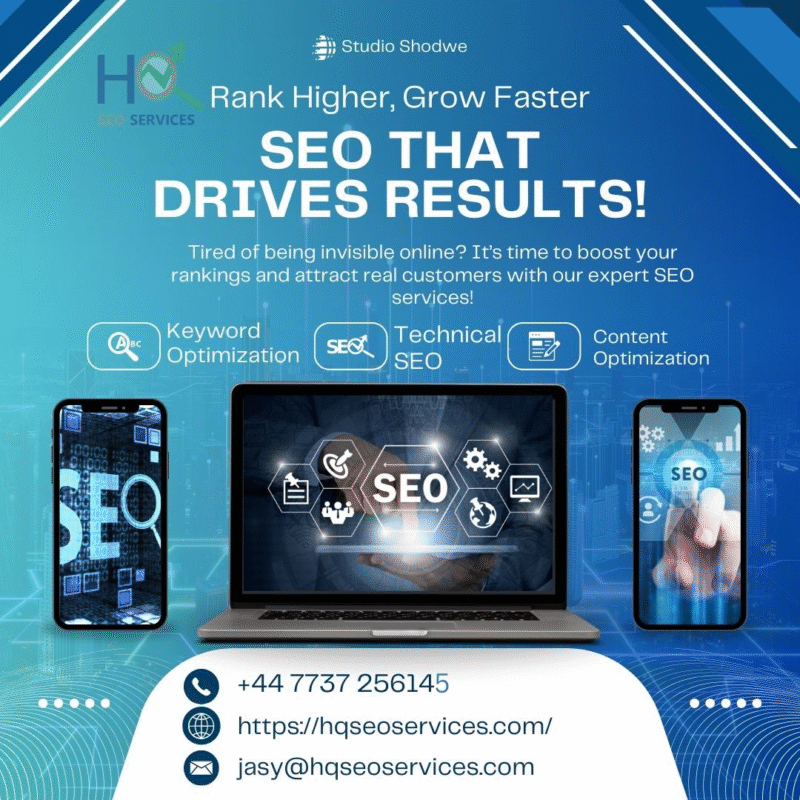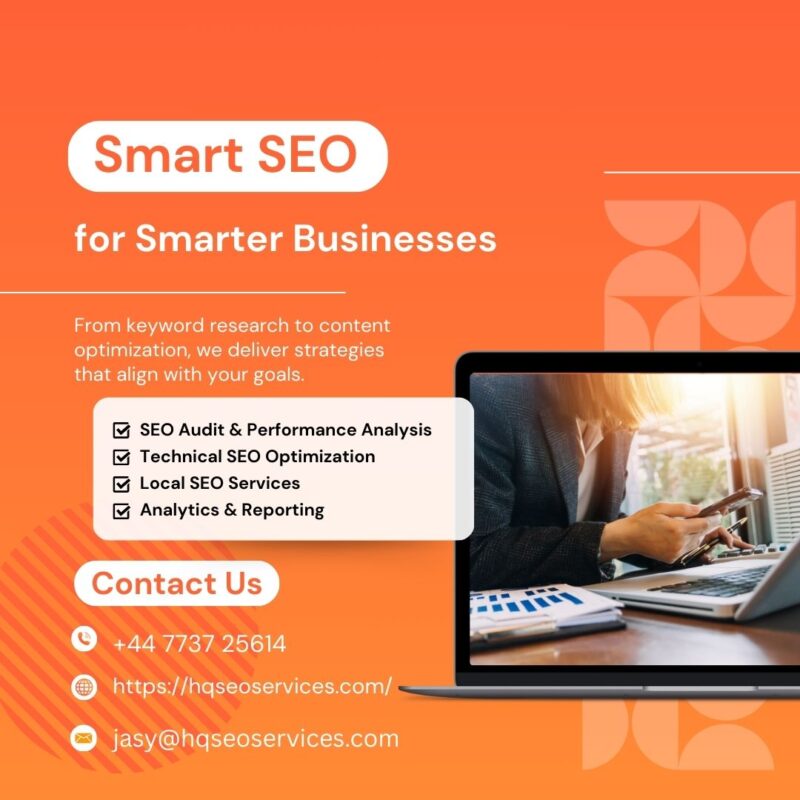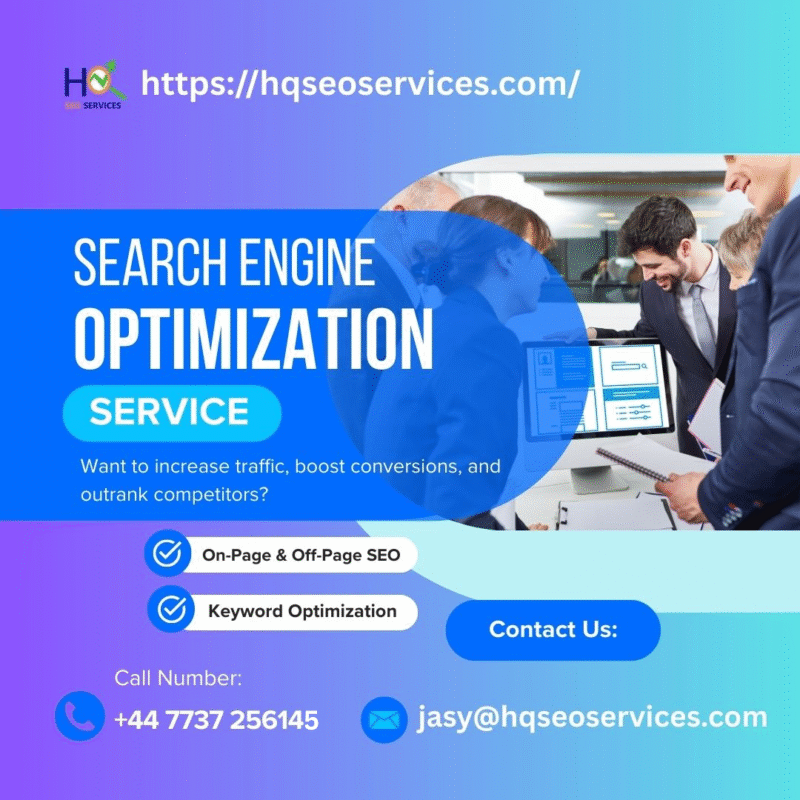SEO That Drives Results: A Complete Strategy for Sustainable Growth
SEO That Drives Results: A Complete Strategy for Sustainable Growth In today’s saturated digital world, having a website is no longer enough. What truly matters is visibility, authority, and conversions. Businesses that invest in SEO that drives results are consistently ahead of competitors in terms of traffic, lead generation, and sales. But what does it really mean to execute SEO that delivers measurable outcomes? In this article, we’ll uncover the tactics and mindset behind high-impact SEO strategies that go beyond rankings—they generate real business value. 1. Why You Need SEO That Drives Results Unlike vanity SEO that focuses only on traffic or keyword rankings, SEO that drives results aims to: Increase qualified leads Improve conversion rates Build brand trust and authority Reduce paid ad dependency Deliver long-term ROI Whether you’re an eCommerce brand, a SaaS startup, or a local service provider, your SEO should align with business goals, not just search engine trends. 2. Understanding What “Results” Really Mean Before diving into tactics, let’s clarify what results you should aim for with SEO: Organic Traffic Growth: A steady increase in users coming from search engines. Higher SERP Rankings: Especially for high-intent keywords. Lower Bounce Rate: Signaling engagement and content relevance. Better Conversion Rates: Whether that’s a purchase, signup, or inquiry. Improved Domain Authority (DA): A sign of growing backlink trust. SEO that drives results is goal-driven SEO—it’s not just about being visible; it’s about being valuable. 3. Core Components of High-Impact SEO Let’s break down the essential elements that fuel SEO success. Technical SEO Your website must be technically sound for search engines to crawl and index it efficiently. Key practices include: Mobile Optimization: Ensure responsive design and fast mobile speeds. Website Speed: Use image compression, caching, and lazy loading. HTTPS Security: SSL certificates are now a ranking factor. Crawlability: Submit XML sitemaps and fix crawl errors in Google Search Console. Structured Data (Schema): Use schema markup to enhance listings with rich snippets. A strong technical foundation is non-negotiable for SEO that drives results. On-Page SEO This is where content meets structure. Ensure every page is optimized with: Targeted Keywords in the title, headings, URL, and body Meta titles and descriptions that encourage clicks Proper use of H1, H2, and H3 for hierarchy Alt text on images for accessibility and SEO Internal linking to strengthen site architecture Your on-page SEO needs to balance readability with search engine visibility. Off-Page SEO What others say about your site (and link to it) matters. Effective off-page strategies include: High-quality backlinks from industry-specific sites Guest blogging to build authority Digital PR and content syndication Encouraging brand mentions on forums, social media, and news sites A healthy backlink profile signals trust and credibility, which directly impacts rankings. 4. Keyword Strategy: Intent Over Volume Many businesses chase high-volume keywords, but smart SEO targets user intent. There are four types of search intent: Informational (e.g., “how SEO works”) Navigational (e.g., “Ahrefs login”) Transactional (e.g., “buy SEO software”) Commercial (e.g., “best SEO tools 2025”) Focus on keywords that match your buyer’s journey. Use long-tail variations to reduce competition and increase relevance. Bold your targeted keywords where appropriate, especially in headings, intros, and anchor text. 5. Content That Converts The best SEO in the world won’t matter if your content doesn’t convert. Here’s how to create content that performs: Use strong introductions with a clear value promise Provide detailed, actionable advice (don’t just skim topics) Include CTAs (calls to action) within the content body Use visuals, bullet points, and whitespace for scannability Structure content with FAQs, schema, and anchor links for better UX Remember: SEO that drives results means users find what they need—and take action. 6. SEO for User Experience (UX) Google’s algorithm now directly factors in UX signals: Page Speed Mobile Usability Core Web Vitals (LCP, FID, CLS) Dwell Time Bounce Rate To improve UX and SEO simultaneously: Reduce intrusive pop-ups Ensure buttons and CTAs are easy to interact with on mobile Use clean, intuitive navigation Break up large blocks of text Ensure fast load times across all devices Good UX = Better SEO results. They are inseparable. 7. Measuring and Optimizing SEO Performance If you’re not tracking your SEO, you’re guessing. Key tools: Google Analytics: Track traffic sources and conversion paths Google Search Console: Monitor rankings, clicks, impressions, and errors SEMrush / Ahrefs: Analyze backlinks, keywords, and competitor performance Hotjar / Crazy Egg: Visualize user behavior Set SMART KPIs: Increase organic traffic by X% in 6 months Improve conversion rate from organic traffic by Y% Rank in the top 3 for Z key terms in 90 days Continuous improvement is the hallmark of SEO that drives results. 8. Common Pitfalls to Avoid Even experienced marketers make SEO mistakes. Watch out for: Focusing only on rankings, not conversions Thin content that doesn’t address user intent Buying cheap backlinks, risking penalties Neglecting mobile UX, which affects most users Ignoring site speed and technical SEO issues Avoiding these missteps can make the difference between visibility and obscurity. 9. Final Thoughts: SEO That Actually Works True SEO success isn’t measured by traffic alone. It’s measured by: How many leads and sales you get How well your website answers real user needs How sustainable your organic growth is By combining technical precision, intent-driven content, off-page authority, and UX optimization, you’ll build a system that delivers SEO that drives results—consistently, predictably, and profitably. Stop chasing rankings. Start building value. That’s how you win with SEO.






